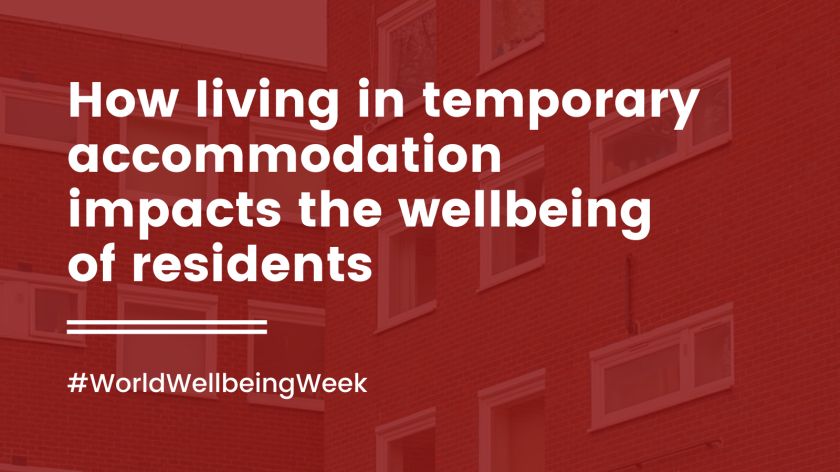Living in temporary accommodation can be a lonely, isolating experience, especially for single homeless households. The people we work with are often placed in temporary accommodation alone, with no plan of action to address their needs, no safety net to prevent them from slipping into rough sleeping, and a very limited understanding of what their options are.
Once placed, it’s not unusual for people to experience a decline in their wellbeing. Some end up in an overcrowded B&B, surrounded by people they don’t know, with little to keep them occupied, and the possibility of eviction lingering over them - a chaotic environment that is not conducive to healthy wellbeing.
In our report, Hidden Homeless Exposed, 58% of our research group had mental health issues, and 42% had trauma related mental ill-health, many due to their experiences of homelessness and temporary accommodation.
Several people commented that the pandemic had little impact on them as they had been ‘self-isolating’ prior to COVID-19 anyway, giving us a glimpse of just how lonely life can be as someone whose experience of homelessness is hidden behind the closed doors of any type of temporary accommodation, especially a hostel, guesthouse or a B&B.
So, how do we, at Justlife, tackle loneliness and improve the wellbeing of people living in temporary accommodation? How can we alleviate some of the stresses people face in this environment?







